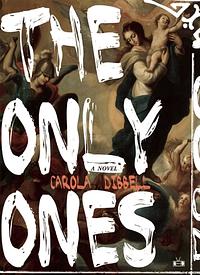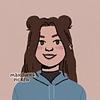Take a photo of a barcode or cover
challenging
dark
slow-paced
DNF at 63% This has an interesting concept but Dibbell doesn't seem to know where to go with it and the book meanders aimlessly nearly as much as her wandering protagonist.
I was so into the premise and execution of this book throughout the first half: for all intents and purposes, a single woman of color doing everything in her power to stay alive in post-pandemic NYC -- but the story devolved into the monotonous tale of what it's like to parent a teenager post-apocalypse. Which is apparently pretty much as difficult, confusing and hormone-filled as I imagine it is in our current world. Why did the author take this path?? The beginning was so so compelling!
I had this sitting by my bedside for weeks. What I got through was interesting and I really did want to finish this book, but I just couldn't do it. Maybe I've lost my reading ju-ju or maybe this wasn't the book for me. Too bad, so sad.
Yes, this is a post-apocolyptic book, but it was such a beautiful mother/child story! When I was pregnant I was looking all over for this kind of novel - the worry and expectation of the pregnancy, the baby time when you have no idea what your doing, and through the turmoil of teenage hormones! It had a different layer, but was very very familiar and touching. I really enjoyed it and it felt much more hopefully than most of these stories end up being.
Pretty quick read once you become accustomed to the writing style and future voice of the protagonist. There is a lot of jargon that you kind of learn via context and the book doesn't spend time explaining you are just thrust into the story. The story is not too distant future world where pandemics are killing damn near everyone. Inez who narrates for us is an anomaly in this future she is immune to all the pandemics. This makes her cellular material extremely valuable... which begins the story which doesn't seem entirely impossible as a dystopian future we may encounter...
Probably 4 stars for the story, but Sasha Dunbrooke's narration brought it up to a 5.
Carola Dibbell's dystopian world-building is exquisite. Often when I read dystopia, I'm not quite clear how we ended up with this world. Or, it seems unbelievable. The post-pandemic near-future world we find Inez in was rather believe to me. This is a story of motherhood and survival and it's lovely and heartbreaking.
Looking through some of the other reviews, I'm extra glad I went with the audiobook. Sasha Dunbrooke gave Inez a unique, nuanced voice that was better than anything I could have provided in my own head - and issues like "should of/should have" don't really matter when it's in audio. They sound right in Inez's voice.
Carola Dibbell's dystopian world-building is exquisite. Often when I read dystopia, I'm not quite clear how we ended up with this world. Or, it seems unbelievable. The post-pandemic near-future world we find Inez in was rather believe to me. This is a story of motherhood and survival and it's lovely and heartbreaking.
Looking through some of the other reviews, I'm extra glad I went with the audiobook. Sasha Dunbrooke gave Inez a unique, nuanced voice that was better than anything I could have provided in my own head - and issues like "should of/should have" don't really matter when it's in audio. They sound right in Inez's voice.
challenging
dark
reflective
medium-paced
Plot or Character Driven:
Character
Strong character development:
Complicated
Loveable characters:
Complicated
challenging
dark
medium-paced
Plot or Character Driven:
Character
Strong character development:
Yes
Loveable characters:
Complicated
Diverse cast of characters:
Complicated
Flaws of characters a main focus:
Yes
Moderate: Infertility, Grief, Medical trauma, Pregnancy
Minor: Suicide attempt
I picked this up on a whim from a shelf of recommended independent press books at Powell's. This dystopian book is post-pandemic, set on the east coast of the U.S. The main character, Inez, is a "hardy" -- someone not susceptible to the pandemic viruses that wipe out cities in waves. She meets up with some rogue scientists off the grid and discovers that she is a good candidate for egg donation... but what she ends up with is not in her plan. This book is a character-driven story about the possibilities of science and the lengths to which people will go to have children, even in the face of overwhelming loss and extremely bad odds.
Right on the back cover of this novel, there is a bold-faced comparison to “Brave New World” which is probably where I got the wrong idea. I know I shouldn’t get my hopes up when books claim to be like other books, but there’s not much I love more than classic speculative fiction so I took the bait. Unfortunately, I found the major elements of my beloved sci-fi to be lacking in this novel. The world-building was sparse, the overall vision of society felt disjointed and confusing, and I was not struck by any pertinent social commentary. This is an insular narrative focusing more on intrapersonal conflict than typical dystopian novels' focus on the general condition of society itself.
To form its dystopia, "The Only Ones" relies on the one-note of mass hysteria over outbreaks of illnesses (in this way, it is more similar to the zombie genre than to speculative fiction). Pandemics and epidemics or “pandys” and “Epis” are common in this world and wipe out hundreds of thousands of people with every new wave. Modern medicine has failed (the vaccines are just as deadly as the illnesses) and people spend their lives watching the TV for news of the next outbreak and directions on where to evacuate to next. The probability of survival for the human race seems pretty bleak. The only type of person who has a chance to make it in this world are “hardies,” or those that have been biologically engineered to resist every bug. Of course our narrator, “I.,” is one of these “goddamn Sylvain hardies,” and the novel is spent following her life.
There is no thrill in following I.’s time in this society because we already know she is immune. Although wave after wave of new illnesses ravage the world around her, we never feel tension or fear because I. isn’t affected. The diseases are the villains of the world, but they are not the villains of I.’s story. So what is?
As the story trudges along, I. finds herself donating her hardy eggs and DNA to some black market scientists who try to incubate them just “to see what happens” and then maybe sell them. We spend pages and pages seeing what happens: which eggs die, which eggs survive, which eggs begin to grow, and that finally one becomes a fully-formed human baby. Is it a clone or is it an autonomous human being – or can it be both? This is the tiniest suggestion of a theme that emerges for the second half of the novel. Set in a back-drop of a “pandy”-ravaged society complete with covert and shady scientists, dubiously mandated quarantines, and a barely-conceived state apparatus, we instead spend our time with I. and her “cute” clone baby isolated in an apartment. That the child is “so cute” is mentioned a gratingly excessive number of times. This novel would benefit from some heavy editing. Well, like, every page has at least one sentence that begins with “well,” and is spliced with “like”; random words are made into proper nouns that do not need to be Proper Nouns; and the narrator ends statement after statement with a question mark? The narrative style is intriguing at first but once it’s clear that there is no plot, stumbling through the strange narrative affect becomes arduous and irritating. You wish that the book would just get to the point, the twist, the heart-wrenching moment, but it never does.
To form its dystopia, "The Only Ones" relies on the one-note of mass hysteria over outbreaks of illnesses (in this way, it is more similar to the zombie genre than to speculative fiction). Pandemics and epidemics or “pandys” and “Epis” are common in this world and wipe out hundreds of thousands of people with every new wave. Modern medicine has failed (the vaccines are just as deadly as the illnesses) and people spend their lives watching the TV for news of the next outbreak and directions on where to evacuate to next. The probability of survival for the human race seems pretty bleak. The only type of person who has a chance to make it in this world are “hardies,” or those that have been biologically engineered to resist every bug. Of course our narrator, “I.,” is one of these “goddamn Sylvain hardies,” and the novel is spent following her life.
There is no thrill in following I.’s time in this society because we already know she is immune. Although wave after wave of new illnesses ravage the world around her, we never feel tension or fear because I. isn’t affected. The diseases are the villains of the world, but they are not the villains of I.’s story. So what is?
As the story trudges along, I. finds herself donating her hardy eggs and DNA to some black market scientists who try to incubate them just “to see what happens” and then maybe sell them. We spend pages and pages seeing what happens: which eggs die, which eggs survive, which eggs begin to grow, and that finally one becomes a fully-formed human baby. Is it a clone or is it an autonomous human being – or can it be both? This is the tiniest suggestion of a theme that emerges for the second half of the novel. Set in a back-drop of a “pandy”-ravaged society complete with covert and shady scientists, dubiously mandated quarantines, and a barely-conceived state apparatus, we instead spend our time with I. and her “cute” clone baby isolated in an apartment. That the child is “so cute” is mentioned a gratingly excessive number of times. This novel would benefit from some heavy editing. Well, like, every page has at least one sentence that begins with “well,” and is spliced with “like”; random words are made into proper nouns that do not need to be Proper Nouns; and the narrator ends statement after statement with a question mark? The narrative style is intriguing at first but once it’s clear that there is no plot, stumbling through the strange narrative affect becomes arduous and irritating. You wish that the book would just get to the point, the twist, the heart-wrenching moment, but it never does.






